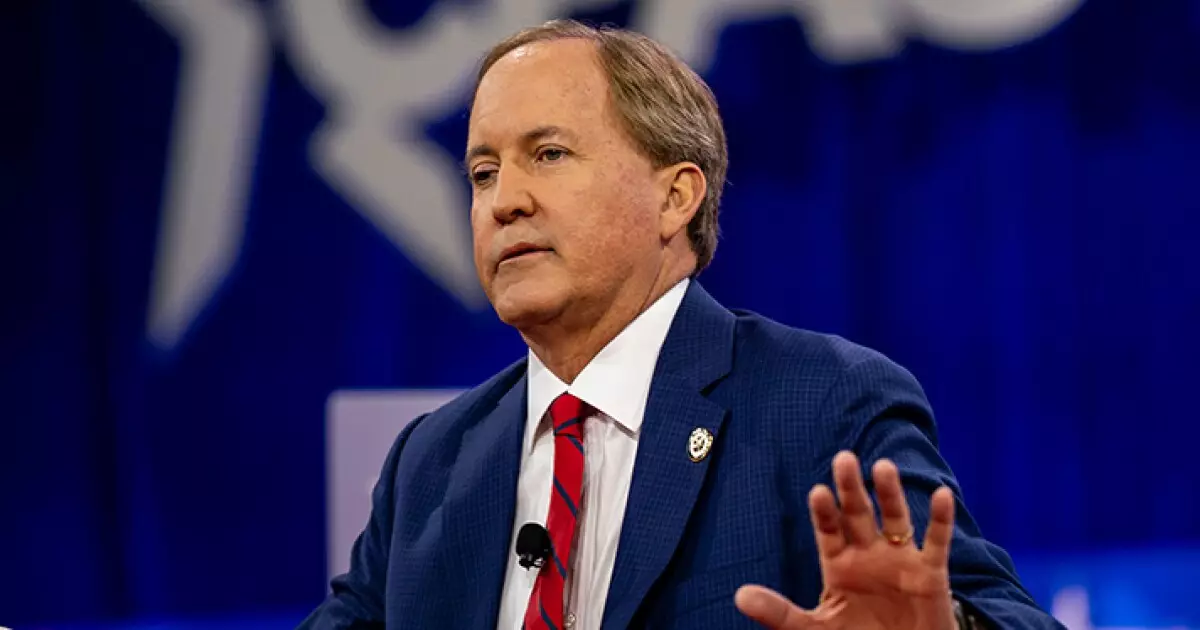In a notable intersection of corporate governance and legislative scrutiny, Bank of America (BofA) and Morgan Stanley have officially withdrawn from the Net-Zero Banking Alliance. This decision arrives in the wake of an investigation by the Texas Attorney General, a move that underscores the tensions inherent in corporate climate commitments amidst a politically charged environment. Their departure not only reflects a reaction to state legislation but also raises questions about the future of corporate environmental engagement in Texas and beyond.
The Texas Attorney General’s inquiry into BofA, Morgan Stanley, and other financial institutions stems from a 2021 law which prohibits state and local governments from contracting with companies that “boycott” the fossil fuel industry. This legislative framework is rooted in a broader movement among certain states to challenge corporate engagements that could constrain the fossil fuel sector, reflecting a conflict between environmental initiatives and financial pragmatism. The law places companies in a precarious position, especially those, like BofA and Morgan Stanley, that have previously pledged to work towards net-zero emissions by 2050.
The withdrawal of these financial giants from the Net-Zero Banking Alliance illustrates not only the immediate pressures of compliance with state regulations but also the long-term implications for their climate commitments. This legal backdrop has significant ramifications for how institutions balance their sustainability goals against potential financial penalties or prohibitions from lucrative government contracts.
Despite their departure from the Net-Zero alliance, both Bank of America and Morgan Stanley have issued statements reinforcing their commitment to climate action. Morgan Stanley stated that the decision to exit the alliance does not alter its dedication to achieving net-zero emissions. They emphasize their intention to support their clients through environmentally responsible transformations, aiming for tangible impacts on decarbonization. Meanwhile, BofA has expressed a commitment to remain engaged with clients on climate-related issues, suggesting a nuanced stance that attempts to reconcile legislative compliance with environmental accountability.
This duality in messaging raises a critical point: can these banks genuinely maintain their climate ambitions while navigating the restrictive framework imposed by state legislation? The lack of clarity on the practical implications of their ongoing climate commitments only adds to the complexity of the situation.
The departures from the Net-Zero Banking Alliance by major financial players mark a significant trend in the evolving relationship between state regulations and corporate climate initiatives. As states like Texas impose stricter requirements on firms that engage in environmentally progressive actions, we may see a broader retreat from similar alliances across the corporate sector. This trend raises important questions around the future of corporate social responsibility—if adherence to climate pacts means sacrificing essential business opportunities.
Furthermore, the ongoing legal challenges to the 2021 Texas law indicate that the confrontation between corporate climate strategies and state policies is far from settled. This backdrop sets the stage for a potential realignment of corporate priorities—where companies may have to consider the risks and rewards associated with their environmental commitments vis-à-vis state legislative environments.
As financial institutions like BofA and Morgan Stanley navigate the turbulent waters of climate engagement in Texas, the outcome of this legislative battle will likely shape corporate strategies for years to come. The relationship between governmental restrictions and corporate climate ambitions will require careful balancing, prompting many companies to reassess how they approach environmental commitments in increasingly polarized political climates. The future remains uncertain, but one thing is clear: the dialogue around climate action and corporate responsibility is evolving rapidly, and stakeholders will be watching closely to see how these banks and others navigate this complex landscape.

